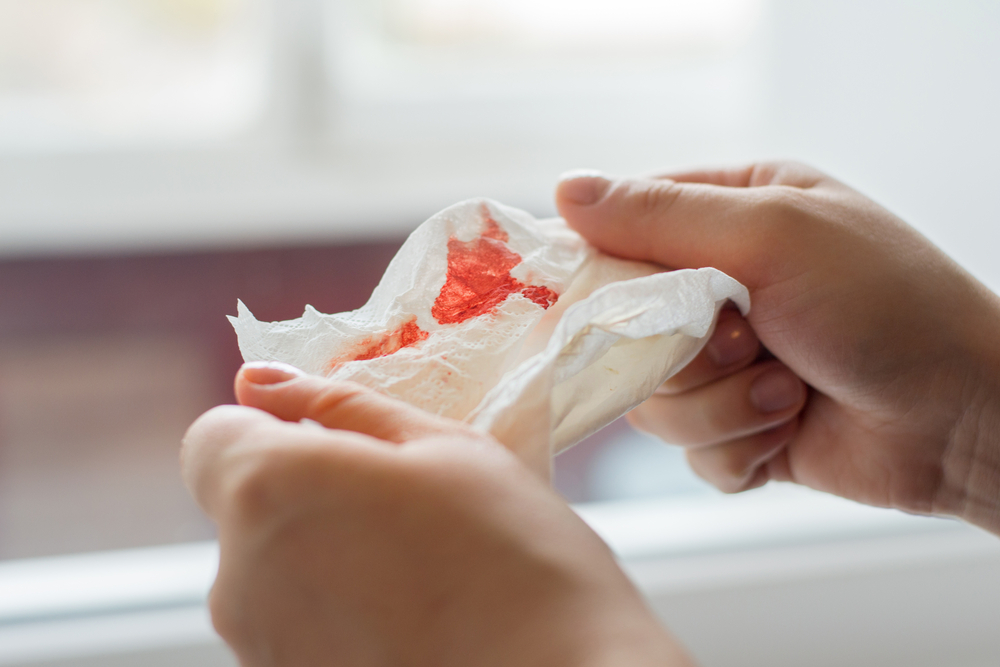Hemoptysis: Understanding the Causes and Seeking Medical Guidance

Bloody mucus or blood can be coughed up or spit out from the lower respiratory tract (lungs and throat). Coughing up blood, also known as hemoptysis (pronounced "he-MOP-tih-sis"), is a common occurrence and has a variety of causes. Most of the causes are not significant. However, if you're coughing up a lot of blood, you might need to go right away to the ER.
When you cough up blood, it frequently appears bubbly or frothy and is combined with mucus or spit. It often exists in minute concentrations and might seem pink, crimson, or rust-coloured.
Causes
An individual may cough up blood for a variety of reasons, from throat inflammation to lung cancer.
Common causes
A respiratory infection or a persistent cough can irritate the airways and perhaps lead to blood in the cough. The most frequent reasons for coughing up blood during an outpatient appointment at a doctor's office, per data from 2015, are:
- Asthma
- Chronic obstructive pulmonary disease (COPD)
- Mild respiratory infections
Patients who cough up blood are more likely to have the following conditions when they are hospitalized (inpatients):
- Lung cancer
- Bronchiectasis
- Pneumonia
- Bronchitis
However, TB is the most frequent reason for bloody coughing in the entire world.
Rare causes
There are a few potentially harmful reasons why someone can cough up blood. These need to be seen by a doctor right away. Examples comprise:
- A serious artery injury in the lung heart disease
- Aberrant tissue enlargements
- Cystic fibrosis lung blood clot (Pulmonary Embolism)
Blood in the cough is another side effect of some medical treatments and testing. These examinations and procedures comprise:
- Bronchoscopy
- Spirometry
- Laryngoscopy
- Tonsillectomy
- Nasal surgery
- Upper airway biopsy
Diagnosis
To ascertain the cause of your bloody cough, your healthcare professional will examine you physically, go over your medical history, and ask you questions. They might query:
- How much blood has been coming up when you cough?
- How frequently do you have blood in your cough?
- How long have you been gagging on blood?
- How much blood is incorporated into spit or mucus?
In addition, your healthcare provider might inquire about risky habits like smoking or using drugs. They can inquire about additional symptoms you've been having to pinpoint potential explanations.
To determine the underlying reason, they could carry out any of the tests listed below:
- A chest X-ray is to check for lung fluid or malignancies.
- A chest computed tomography (CT) scan is to look at X-ray results or go along with another procedure, like a bronchoscopy.
- A bronchoscopy is to find the bleeding site and determine whether your airways are clear.
- CBC to determine how much blood you've lost and check for infection indications.
- A sputum culture of your lung excretions to test for infectious factors, such as viruses or bacteria, that could be causing you to cough up blood.
- A blood clotting test (coagulation test) to determine whether your symptoms are caused by a bleeding disorder
- To examine the blood flow via your lungs through pulmonary arteriography.
- To rule out autoimmune disorders that affect your lungs and kidneys, a urinalysis and/or kidney function test may be required.
Depending on what they think is causing you to cough up blood, your doctor may carry out more procedures or request additional tests.
Treatment
The course of treatment will depend on how much blood you've lost and what's making you cough up blood. In the intensive care unit, you will receive care if you are losing a lot of blood (ICU). Before determining what is causing your blood loss, your care team will strive to stabilize you and stop the bleeding.
The following are possible treatments for severe blood loss caused by coughing up blood:
- A bronchoscopy removes any airway clots that might be the source of the bleeding.
- Angiography of the bronchial arteries and embolization block the blood vessels that are causing your hemorrhage.
- Medication for significant blood loss that is used to halt bleeding (tranexamic acid).
Your healthcare practitioner will discuss the best course of action to manage your symptoms and the underlying problem once they have ascertained what is making you cough up blood.
The following are some treatments for diseases that could make you cough up blood:
- Antibiotics - If your disease is being caused by tuberculosis or pneumonia
- Steroids - If swelling is what's wrong with you
- Surgery and cancer treatment - if your disease is brought on by a malignant (cancerous) tumor.


